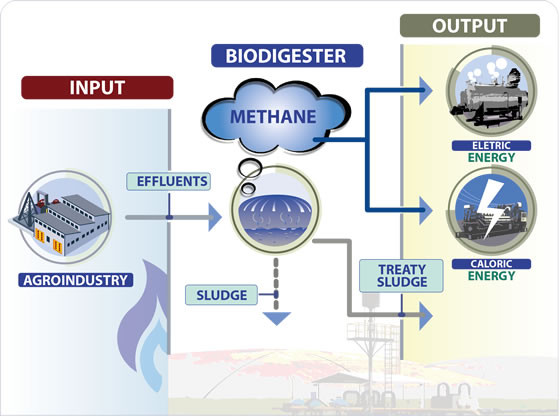Liquid Organic fertilisation systems
Liquid Organic fertilisation systems
For the effluents and wastes not to be discharged in rivers or landfills, it is necessary to find ways to return the organic matter and nutrients they contain to the soil. Agronomy and agricultural engineering are a complement to environmental and sanitary engineering. Fertilisation with fresh or decomposed organic material is already common practice in agriculture around the world. Liquid Organic Fertilisation is less well known but equally important.
When liquid application technologies do not exist or are not satisfactory for technical or financial reasons, BIOTEC engineers innovative solutions for organic fertiliser application. The principles and features largely depends on the type of crop. This is the case of "FORLIM"® (Liquid Organic Fertilisation Monitored System), that allows the application of treated effluent and sludge from the bio-digesters in a controlled fashion on the plantations. The FORLIM uses a computer system (SCADA) and a GIS (Geographical Information System) allowing online control and tracking of the fertilisation process.
The FORLIM generate periodic reports on fertilisation for the management and/or environmental authorities.
Dosage of nutrients per hectare per year are similar to the dosage used for chemical fertilisation.
LIQUID ORGANIC FERTILISATION can achieve:
- Zero discharge to rivers and water bodies
- Providing and adding value to anaerobic sludge and effluents
- Replacement of chemical fertiliser in the estates
- Improvement of the soil
- Increase in performance
Order of magnitude:
| Crop | Dosage (liquid organic fertilizer). | ||
|---|---|---|---|
| OIL PALM: | 100 - 300 | m3/ha-year | |
| SUGARCANE: | 50 - 300 | m3/ha-year | |
| CITRUS: | 1000 - 2000 | m3/ha-year | |
- Region: Asia , Europe , South America
- Country: Belgium , Malaysia , Colombia
- {{ error }}
- Request sent successfully.




